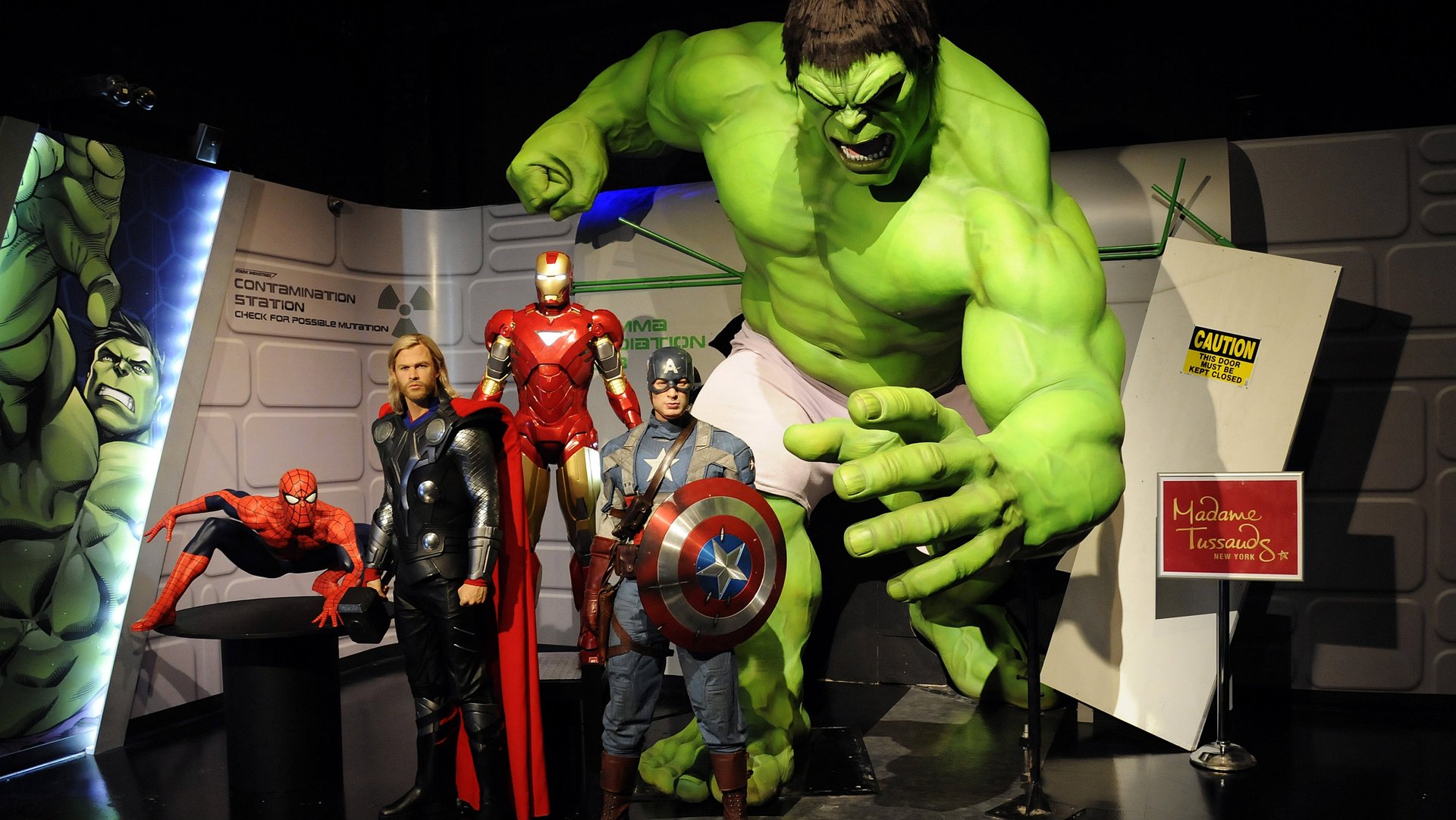Why you shouldn’t get too excited about Marvel and DC’s long-term movie plans
Yesterday was a wonderful day to be a Marvel fan. In a rapturous event akin to an Apple product launch, the studio unveiled Phase Three of its cinematic slate: nine films stretching through 2019 that include a third Captain America movie (subtitled Civil War, it will feature Steve Rogers/Captain America facing off against Iron Man/Tony Stark), a two-part Avengers: Infinity War (the third and four Avengers films, coming out in 2018 and 2019), and standalone movies for new-to-the-screen comic-book favorites like Black Panther, Doctor Strange and Captain Marvel.


Yesterday was a wonderful day to be a Marvel fan. In a rapturous event akin to an Apple product launch, the studio unveiled Phase Three of its cinematic slate: nine films stretching through 2019 that include a third Captain America movie (subtitled Civil War, it will feature Steve Rogers/Captain America facing off against Iron Man/Tony Stark), a two-part Avengers: Infinity War (the third and four Avengers films, coming out in 2018 and 2019), and standalone movies for new-to-the-screen comic-book favorites like Black Panther, Doctor Strange and Captain Marvel.
This news comes just two weeks after Marvel’s chief rival, DC Comics, revealed its own long-term plans for their film franchises into 2020, including Wonder Woman, Aquaman and Shazam movies, and two Justice League films. Previously, Lucasfilm and Sony announced ambitious strategies to put out, respectively, one Star Wars and Spider-Man film each year (either a sequel or spinoff)—until, the studios hope, the end of time. Fox is also trying to do the same with its X-Men and soon-to-be-rebooted Fantastic Four franchises.
It’s a potentially thrilling lineup of films to anticipate for many, many years to come. And there’s admittedly a lot to be excited about, particularly the introduction of Marvel’s first female (Captain Marvel) and black (Black Panther) superhero standalone films. Yet at the same time, there’s also a very real chance that despite all these company’s meticulous long-term plans, one—or all—of these franchises could veer wildly off-course, as soon as one of these films stumbles at the box office.
While superhero films used to exist in their own worlds (Superman and Batman), they are now all intertwined, and part of grand corporate plans that are built on momentum: characters are introduced in one film and will carry over into subsequent films. Marvel announced that Black Panther (to be played by 42 star Chadwick Boseman) will first appear in 2016’s Captain America: Civil War before moving over to his own standalone film the following year.
So what will happen if and when one of these films bombs? If 2016’s Superman v Batman: Dawn of Justice ends up as clunky and disappointing as its title, are audiences still going to want to follow that film’s characters — including Superman, Batman, Wonder Woman and Aquaman — into their own standalone films? If next year’s Star Wars: Episode VII movie is more Phantom Menace than Star Wars (sorry, I refuse to call it A New Hope) or Empire Strikes Back, will people still be so excited about the various other sequels and standalone films coming down the pike every 12 months? Absolutely not.
We already got a preview of such a scenario this summer, when The Amazing Spider-Man 2 was a critical and commercial disappointment. Two months later, Sony decided to alter its Spidey strategy and pushed the third film back two years, from 2016 to 2018 (when The Amazing Spider-Man 4 had previously been announced for release), slotting in a Sinister Six spinoff (focusing on Spider-Man villains) in its place for 2016. It only took one underperforming film to derail Sony’s plans; they’re now reportedly even considering sharing the character with Marvel to help rehab his image.
That kind of cinematic misstep is certain to happen again. While there have been some tremendous superhero films made in the past several years—like Guardians of the Galaxy, The Avengers, Captain America: The Winter Solider, The Dark Knight and X-Men: Days of Future Past—there have been just as many misfires: Jonah Hex, Green Lantern, Batman and Robin, X-Men: The Last Stand, Catwoman, Elektra and Spider-Man 3, for starters.
There’s also the inevitable fatigue of annual movie slate with a never-ending run of Marvel, DC, Spider-Man and Star Wars films. At some point, audiences are going to burn out on comic-book films as we eventually did on Sylvester Stallone and Arnold Schwarzenegger action films and Adam Sandler comedies.
Marvel has amazingly managed to dodge this bullet so far: its only out and out clunker during its amazing cinematic run (its 10 films to date, starting with Iron Man in 2008, have grossed an astounding $7 billion) has been Iron Man 2, and that was quickly forgotten by the excitement over the upcoming The Avengers. But at some point, Marvel’s luck will likely run out, as will DC’s, Lucasfilm’s, Sony’s and Fox’s.
So before we all get too excited about seeing Avengers: Infinity War—Part II on May 3, 2019 (hey, I already had Justice League Part Two plans that night!), let’s hope that these companies are working on backup plans with the same urgency and intensity as they are devoting to firming up their 2020 release schedules. Because, at some point, they’re going to need them.